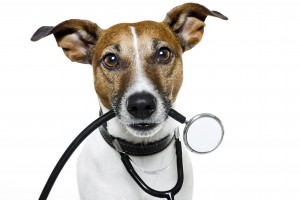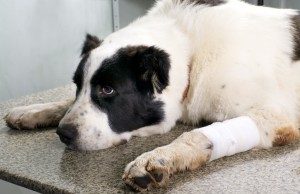Pet Wellness
The cornerstone of pet wellness is a complete physical exam performed every year. During your pet’s wellness exam, our doctors will discuss your pet’s unique health needs. This includes vaccination, heart worm prevention, parasite control, nutrition, and any conditions specific to your pet. These may include dental issues, wound care, canine hip dysplasia detection, and pain management.
Vaccination
With new understanding of immunity, vaccination protocols have become much more complex in recent years. Giving certain vaccinations every year is no longer the standard care. In general, we comply with the vaccination recommendations set forth by AAHA (American Animal Hospital Association). However, each patient is treated as an individual with unique needs.
Do you have a new puppy or kitten?
Puppies and kittens need to have vaccinations to prevent deadly diseases. In general, we recommend that puppies and kittens begin their vaccination schedule as early as 6 weeks of age. Most puppies and kittens receive vaccinations every month until they are 4-6 months of age. Older pets need vaccines as well. But not as frequently as young animals. We treat pets every day for diseases that could have been prevented with vaccination.
Are Your Pets Vaccinated Against Rabies?
Rabies is one of the most feared infections of all times. Rabies is a virus that is nearly untreatable once symptoms begin. Skunks, bats, raccoons, foxes, and coyotes are the most common species to spread rabies. Rabies vaccine is available for dogs, cats, and horses.
Rabies is transmitted when an infected animal’s saliva enters the victim’s tissue during a bite. The rabies virus attaches to the local muscle cells for a few days before penetrating the local nerves and beginning its slow ascent to the brain. The average time between a bite and detectable rabies virus in the brain is 20-30 days, but it can take up to one year. Once the rabies virus reaches the brain, the rabies virus is shed in all body secretions including saliva. At this point, the rabies virus can be transmitted and rabies symptoms begin. Happily, rabies can be prevented with a vaccine and by limiting exposure to wild life. Rabies vaccination is available for dogs, cats and horses.
Do you know the symptoms of rabies? Any animal can be infected by rabies, including horses and cows! It can take up to a year from the time of the initial bite before the symptoms of rabies begin to show. Rabies symptoms vary but here are some to look for:
A change in personality or a voice change.
Aggression.
Drooling or foaming at the mouth.
Paralysis.
If you notice any of these symptoms in your animals, contact us immediately. All of your dogs, cats, and horses should be vaccinated for rabies.
Feline Vaccination
Our feline patients have special needs depending on their lifestyle. We believe that adjuvent free vaccines are the safest option for our feline patients.
Has your cat been tested for feline leukemia? Feline leukemia is an infectious virus of cats that is spread by the saliva or blood of infected cats. Feline leukemia can also be spread from an infected mother to the fetus during pregnancy. All cats, particularly those less than one year of age, should be tested and vaccinated for feline leukemia.
Heart Worm Prevention
Dogs and cats become infected with heart worms when they are bitten by an infected mosquito. Heart worm disease is deadly but Heart worm disease can be easily prevented with a monthly pill. If your dog or cat is not on a monthly preventative for heartworm disease, ask us about getting started today.
Heart worm is endemic in our area. Heart worm prevention is for all dogs and cats, even those that live exclusively indoors. Most dogs and cats need to be tested before they are started on prevention. Most heart worm preventatives are medications that are administered every month. There is also a long lasting (6 month) injectable that is available.Heart worm disease is very easy to prevent. It is very difficult to treat. Make sure your pet is protected! If you have questions about whether or not your pet is currently on preventative, please call us.
Microchipping
A microchip ID is a small transmitter about the size of a grain of rice. When a scanner passes over it, a signal is emitted indicating the unique id number of the chip. This unique id number can be linked to your contact information. If your pet is lost, a microchip can help reunite you with our lost pet. A microchip can be implanted in a matter of seconds while you wait.
A microchip ID is small enough to pass through a needle and can be implanted in your pet like a shot. The implantation only takes a few seconds. A microchip is an identification device that can help reunite you with your pet should your pet become lost. A microchip is not a locating device like a GPS. The microchip contains a unique id that is registered to your contact information so that you can be notified if your pet is found.
If you are interested in having your pet microchipped, talk to us today.





